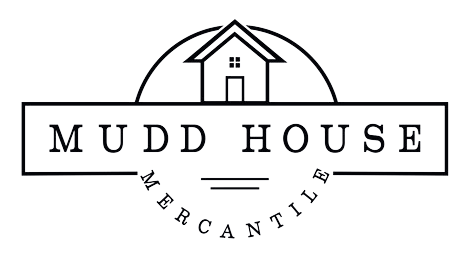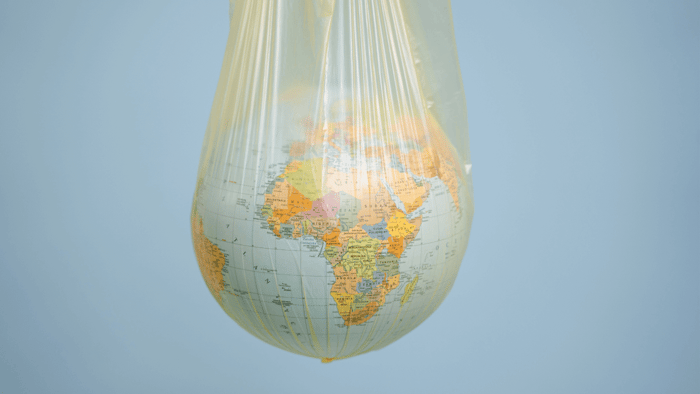Every July, millions of people around the world take part in Plastic Free July, a global movement that encourages us to refuse single-use plastics and rethink our relationship with waste. It’s a time when people start to ask: How much plastic do I really use? Where can I make a change?
But here’s the truth: plastic pollution doesn’t disappear with the calendar. The plastic we use today will likely stick around for centuries. That’s why these small, daily choices matter so much—and why the changes we make during Plastic Free July can inspire habits that last all year long.
The good news? Plastic free living can be manageable, even joyful. It’s not about perfection. It’s about progress, curiosity, and a little creativity. And when we make these swaps together, we multiply our impact.
This 31-Day Plastic Free July Challenge invites you to explore simple, practical swaps that can easily fit into your life. Whether you’re just getting started or you’ve been on this journey for a while, each day offers a new way to make a difference.
How the Plastic Free Movement Began
What makes Plastic Free July so impactful is its approachable message—it’s not about eliminating all plastic at once. It’s about starting small, becoming more aware, and making gradual, meaningful changes.
In the book Plastic Free: The Inspiring Story of a Global Environmental Movement and Why It Matters, author Rebecca Prince-Ruiz—the founder of Plastic Free July—shares how this simple idea sparked a global shift. What began as a local challenge in Western Australia quickly grew into an international movement, proving that small, everyday actions can ripple out into worldwide change.
The plastic crisis affects our oceans, wildlife, communities, and even our climate—but it’s everyday people like us who have the power to push back. Each choice to use less plastic moves us closer to a cleaner, healthier planet.
Your 31-Day Plastic Free July Challenge
Here are 31 doable swaps you can explore this month and beyond as part of your Plastic Free July Challenge. Each one is a small but meaningful step toward reducing waste—and each comes with a quick note about why it matters.
1. Bring Your Own Reusable Bags
Why: Plastic bags are a top ocean pollutant and harmful to wildlife. A reusable bag can replace hundreds of single-use ones.
2. Ditch Plastic Straws
Why: Millions of plastic straws are discarded daily, posing a direct threat to sea turtles and marine life.
3. Use a Reusable Water Bottle
Why: Single-use plastic bottles are among the most common littered items. A reusable bottle can save hundreds of bottles per year from being disposed off.
4. Switch to a Bamboo Toothbrush
Why: Plastic toothbrushes take hundreds of years to break down. Bamboo handles can be composted, drastically reducing waste.
5. Choose Package-Free Soap Bars
Why: Soap bars often come without plastic packaging and last longer than liquid soap, reducing plastic bottles in your home.
6. Carry Reusable Utensils
Why: Plastic cutlery is rarely recycled and typically used for minutes before being tossed.
7. Buy in Bulk with Your Own Containers
Why: Bulk shopping cuts down significantly on plastic packaging and lets you buy only what you need.
8. Shop at Your Local Farmers Market
Why: Local produce often comes package-free and supports nearby farmers, reducing your carbon footprint.
9. Compost Food Scraps
Why: Composting reduces methane emissions from landfills and turns waste into nutrient-rich soil.
10. Use Cloth Napkins and Towels
Why: Swapping paper towels for reusable cloths reduces waste and saves trees.
11. Say No to Single-Use Coffee Cups
Why: Most disposable coffee cups are lined with plastic and aren’t recyclable in many areas.
12. Avoid Plastic Wrap
Why: Plastic wrap is single-use and non-recyclable. Beeswax wraps or silicone lids are durable, plastic-free options.
13. Swap Disposable Razors for Reusables
Why: Reusable safety razors can last for years, saving money and eliminating plastic waste.
14. Choose Glass or Stainless Steel Food Containers
Why: Safer for food storage, these materials don’t leach chemicals like some plastics can.
15. Use a Milk Bottle Brush
Why: Natural-fiber brushes clean glass bottles without contributing to micro-plastic waste.
16. Pick Natural Fiber Dish Towels
Why: These towels are compostable, long-lasting, and a sustainable swap for synthetic cleaning cloths.
17. Avoid Microbeads and Plastic Glitter
Why: Tiny plastics bypass filtration systems and end up in waterways, harming marine ecosystems.
18. Make Your Own Cleaning Products
Why: DIY cleaners cut plastic packaging waste and reduce exposure to harsh chemicals.
19. Carry a Reusable Produce Bag
Why: Lightweight and washable, produce bags replace the flimsy plastic ones at grocery stores.
20. Skip Plastic Packaging
Why: Opting for loose or paper-wrapped goods helps reduce the overwhelming amount of plastic in our supply chain.
21. Use Bar Shampoo and Conditioner
Why: Shampoo and conditioner bars last longer, and are great for travel.
22. Donate or Buy Secondhand
Why: Giving items a second life keeps them out of landfills and reduces demand for plastic-heavy new goods.
23. Say No to Plastic Bottled Sauces and Dressings
Why: Making your own or buying in glass helps you skip the plastic and cut packaging waste.
24. Bring Your Own Containers for Takeout
Why: Many restaurants now welcome BYO containers, reducing disposable packaging with every meal.
25. Avoid Plastic-Wrapped Produce
Why: Choosing unpackaged fruits and vegetables supports a lower-waste food system.
26. Use Reusable Coffee Filters
Why: Replacing disposable paper filters and plastic pods cuts daily waste and can save you money.
27. Use Bar Soap for Dishes
Why: Dish soap often comes in plastic bottles, but solid dish soap bars are a low-waste, effective alternative. They last longer, cut down on packaging, and work just as well!
28. Use Reusable Menstrual Products
Why: Products like menstrual cups and reusable cloth pads drastically cut plastic waste and can save you hundreds of dollars.
29. Choose Plastic-Free Toys and Gifts
Why: Wooden, fabric, and metal gifts are often safer, longer-lasting, and compostable or recyclable.
30. Learn to Repair and Repurpose
Why: Extending the life of your items prevents waste and supports a more circular economy.
31. Share Your Journey
Why: Talking about your sustainable swaps inspires others, builds community, and grows the Plastic Free July movement.
Small Changes, Big Impact
Every time you choose to skip plastic, you’re making more than a swap—you’re making a statement: I care about this planet, and I want to do things differently.
It might seem like a tiny step, but when lots of people make that same choice, it adds up fast. Skipping one plastic bag today might feel small, but over time—and multiplied by thousands—it leads to real, measurable change. When enough of us take action, businesses, communities, and even entire industries start to pay attention.
Your everyday choices during Plastic Free July and beyond have power. And together, they can change the future.
How Mudd House Mercantile Can Support You
We’re all about helping you live a low-waste lifestyle that feels simple, beautiful, and sustainable. We handpick eco-friendly products that help you cut down on plastic without giving up the things you love.
Where you choose to shop matters. Every purchase you make with a plastic-free store is a step toward building a more sustainable world and supporting your Plastic Free July journey.
A Few Customer Favorites:
Kantha Dish Towels
These soft, colorful towels are made from recycled saris—perfect for replacing paper towels in your kitchen.
Fat and the Moon Deodorant
This natural, skin-friendly deodorant comes in a recyclable glass jar. It’s good for you and the planet.
Redecker Milk Bottle Brush
Made from natural fibers and sustainable wood, this is a durable, zero-plastic cleaning brush.
Bamboo Toothbrush
An easy swap for your daily routine—fully compostable and plastic-free toothbrush.
When you shop with Mudd House Mercantile, you’re joining a community that believes in reducing waste, supporting ethical brands, and making mindful purchases that last—long after Plastic Free July is over.
What You’ll Discover Along the Way
Choosing to live with less plastic isn’t about giving things up—it’s about finding something better.
Feel-Good Progress
Every swap you make is a real, positive step for the environment.
A Safer Home
Choosing natural, low-waste products often means fewer harsh chemicals in your space.
A Supportive Community
You’ll find like-minded people who are working toward the same goal—and that kind of support matters, especially during Plastic Free July.
Long-Term Savings
Reusable items like water bottles and Unpaper towels save money over time.
Helping the Planet
Each low-waste swap helps reduce pollution and protect animals and ecosystems.
Creative Living
Finding plastic-free solutions can inspire new, fun, and thoughtful ways to approach everyday life.
Why It’s More Than Just July
Plastic Free July is a great starting point, but the work continues long after the month is over. Plastic waste is an ongoing problem—and the good news is, we can keep making a difference all year.
When you keep making sustainable swaps, you’re helping to:
- Protect animals and oceans
- Lower pollution and emissions
- Support businesses that care about the planet
- Create a healthier, less wasteful world
And here’s the best part: you don’t have to stop enjoying the things you love—you just get to enjoy better, more sustainable versions.
Let’s Keep Moving Forward—Together
We’d love to support you on your low-waste journey—whether you’re just beginning or fully embracing a plastic-free lifestyle.
Subscribe to our newsletter for tips, new products, and fresh low-waste ideas straight to your inbox.
Follow us on Instagram @muddhousemercantile and tag us in your Plastic Free July swaps—we’d love to see what you’re up to!
Thank you for choosing to make thoughtful, sustainable choices with us.

